Read a recap and view videos from “Building the New Economy: Data as Capital.”
Web3 presents new digital means of production and an opportunity to rebalance the relationships between all stakeholders of the economy. As humans continue to develop brilliant new applications of emerging technologies, we need to reimagine the ways our society is organized so that data serves all communities.
The speakers and panelists who participated in “Building the New Economy: Data as Capital,” a special Stanford Digital Economy Lab event as part of Stanford Digital Assets Week, examined the feasibility and implications of human-centered web3, including:
Agenda
All times Pacific Time (PT)
10:00a
Welcome
Erik Brynjolfsson, Director, Stanford Digital Economy Lab
Christie Ko, Executive Director, Stanford Digital Economy Lab
10:10a
Keynote
Building the New Economy: What We Need and How to Get There
Sandy Pentland
Director, MIT Human Dynamics Laboratory
Director, MIT Media Lab Entrepreneurship
Visiting Scholar, Stanford Digital Economy Lab
10:30a
Panel 1: The Human Perspective: New Types of Engagement
Lucy Bernholz, Digital Civil Society Lab
Delicia Hand, Consumer Reports
Melissa Valentine, Stanford University
Sheila Warren, Crypto Council for Innovation
As digital businesses replace traditional physical businesses and civic systems, we must grapple with the implications of the amount of data, and resulting power, held by a small number of actors. As in the past, citizen organizations may be central in helping balance economic and social power (much like trade unions and cooperative banking institutions formed as a response to the forces of industrialization and consumer banking). This panel discussion explores how community organizations can wield data cooperatives, shared data, and distributed tokenized funding mechanisms to form a system based on collective rights and accountability.
11:45a
Lunch
1:00p
Panel 2: Resilient Systems: Making Society Work Better
Jennifer King, Stanford University
Alissa Kleinnijenhuis. Stanford University
Brie Linkenhoker, Worldview Studio
Joshua Tan, Metagovernance Project; Digital Civil Society Lab
New distributed, technology-enabled organizations may offer a path toward more resilient, transparent, inclusive, agile, and proactive systems, and a better future, particularly in places where existing institutions are either weak or underserved. In this panel discussion, we explore how new architectures could provide significant upgrades to — or enable wholly new — systems of currency and finance, taxation, and privacy.
2:15p
Break
2:45p
Panel 3: Data and AI: A New Ecology
Dazza Greenwood, MIT Media Lab
Jeff Hancock, Stanford Social Media Lab
Sean McDonald, Stanford Digital Civil Society Lab
Sandy Pentland, MIT; Stanford Digital Economy Lab
To support a world with billions of data owners, producers, and consumers, governed by digital data and AI, we need to build infrastructure that enables interoperability across company and national boundaries. This infrastructure will determine the future of finance and money, civic engagement, and factors that contribute to human flourishing. This panel discussion explores the opportunities and challenges of designing ecosystems of trusted data and AI that provide safe, secure, and human-centered services for everyone.
4:00p
Closing Remarks
Erik Brynjolfsson, Director, Stanford Digital Economy Lab
4:15p
Reception
5:00p
Adjournment
Featured panelists
and moderators

Director, Digital Civil Society Lab
Lucy Bernholz is a senior research scholar at Stanford University’s Center on Philanthropy and Civil Society and director of the Digital Civil Society Lab. She has been a visiting scholar at The David and Lucile Packard Foundation, and a fellow at the Rockefeller Foundation’s Bellagio Center, the Hybrid Reality Institute, and the New America Foundation.
She is the author of numerous articles and books, including the annual Blueprint Series on Philanthropy and the Social Economy, the 2010 publication Disrupting Philanthropy, and her 2004 book Creating Philanthropic Capital Markets: The Deliberate Evolution. She is a co-editor of Philanthropy in Democratic Societies (2016, Chicago University Press) and of the forthcoming volume Digital Technology and Democratic Theory. She writes extensively on philanthropy, technology, and policy on her award-winning blog, philanthropy2173.com.
Benholz studied history and has a B.A. from Yale University, where she played field hockey and captained the lacrosse team, and an M.A. and Ph.D. from Stanford University.
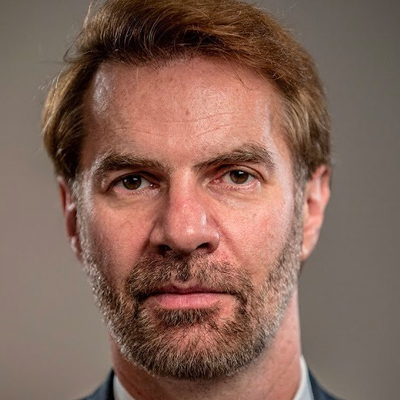
Director, Stanford Digital Economy Lab
Erik Brynjolfsson is one of the foremost experts on the digital economy in the world. Erik Brynjolfsson’s research examines the effects of information technologies on business strategy, productivity and performance, digital commerce, and intangible assets. A best-selling author, he writes and speaks to global audiences about these topics.
Erik is the director of the Stanford Digital Economy Lab and the Jerry Yang and Akiko Yamazaki Professor and senior fellow at the Stanford Institute for Human-Centered AI (HAI), He also serves as the Ralph Landau Senior Fellow at the Stanford Institute for Economic Policy Research (SIEPR), professor by courtesy at the Stanford Graduate School of Business and Stanford Department of Economics, and a research associate at the National Bureau of Economic Research (NBER).
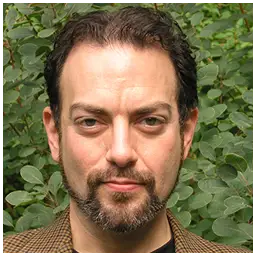
Lecturer and Research Scientist, MIT Media Lab
Dazza Greenwood, a lecturer and research scientist at the MIT Media Lab, conducts research projects on big data, identity federation and trust frameworks with 2013/2014 academic year research focus on defining and developing “Computational Legal Science” as a sub-discipline of computational social science. Dazza leads the CIVICS.com consultancy, providing solutions at the intersection of business, law and technology for the innovation economy. Dazza also serves as the vice chair of the Plenary for the Identity Ecosystem Steering Group (IDESG of NSTIC), which is developing a framework for federated identity and privacy at the international level.
Dazza has consulted with fortune 100 companies, including the insurance industry and financial services sector, architecting the creation of trust frameworks. Federally, Dazza has testified several times on eCommerce before the US House and US Senate and has consulted to NASA as an online identity expert, GSA as a multilateral rules drafting expert, Homeland Security as a multistate federal governance expert and many other agencies and departments. Dazza is a member of the Steward’s Council of the Identity Commons and heads it’s Forum on Law of Identity and Personal Data. Dazza also co-founded the eCitizen Foundation, which focused on creating citizen-centered online identity and personal data sharing projects and solutions.
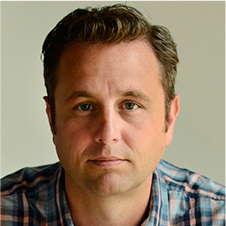
Founding Director, Stanford Social Media Lab
Jeff Hancock is founding director of the Stanford Social Media Lab and is a Professor in the Department of Communication at Stanford University. Professor Hancock and his group work on understanding psychological and interpersonal processes in social media. The team specializes in using computational linguistics and experiments to understand how the words we use can reveal psychological and social dynamics, such as deception and trust, emotional dynamics, intimacy and relationships, and social support. Recently Professor Hancock has begun work on understanding the mental models people have about algorithms in social media, as well as working on the ethical issues associated with computational social science.
Professor Hancock is well-known for his research on how people use deception with technology, from sending texts and emails to detecting fake online reviews. His TED Talk on deception has been seen over 1 million times and he’s been featured as a guest on “CBS This Morning” for his expertise on social media. His research has been published in over 80 journal articles and conference proceedings and has been supported by funding from the U.S. National Science Foundation and the U.S. Department of Defense. His work on lying and technology has been frequently featured in the popular press, including the New York Times, CNN, NPR, CBS, and the BBC.
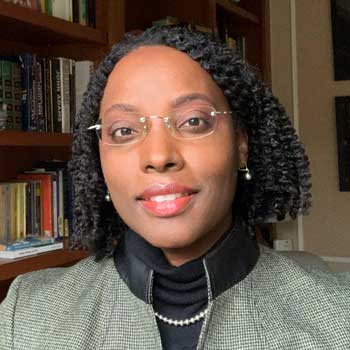
Director, Financial Fairness Advocacy, Consumer Reports
Delicia Hand is the Director of Financial Fairness Advocacy at Consumer Reports.
She helps lead CR’s advocacy for a fair and just marketplace in which people’s financial well-being is supported through safe, transparent and innovative products and services, both in the burgeoning digital finance space as well as in traditional credit, lending and auto insurance.
Before joining CR, Delicia served for ten years at the Consumer Financial Protection Bureau (CFPB). Most recently, she was the Deputy Associate Director and Acting Associate Director for the CFPB’s Consumer Education & External Affairs Division. In that role, she helped to lead and shape the Bureau’s efforts to include diverse perspectives in its policymaking, elevate its financial inclusion agenda, and ensure that the voice and experience of consumers were more integrated in the Bureau’s policy making.
Prior to the CFPB, Delicia was the Legislative Director at the National Association of Consumer Advocates, where she led its legislative and regulatory consumer protection agenda. She served as Director of Organizational Initiatives & General Counsel at the Center for Community Change and Center for Community Change Campaign.
Delicia also served as Senior Counsel/Legislative Director in the office of U.S. Rep. John Sarbanes. Working on Capitol Hill, she wrote and helped advance and pass the Public Service Loan Forgiveness Act as part of the Higher Education Reauthorization package in 2007. Before the Hill, she was a Skadden Fellow, leading a number of economic development initiatives to help immigrants living and working in northern Virginia.
Delicia holds a law degree from American University in Washington, D.C., a master’s in political studies from Cambridge University, U.K., and a bachelor’s in sociology and politics from St. Peter’s College in New Jersey.
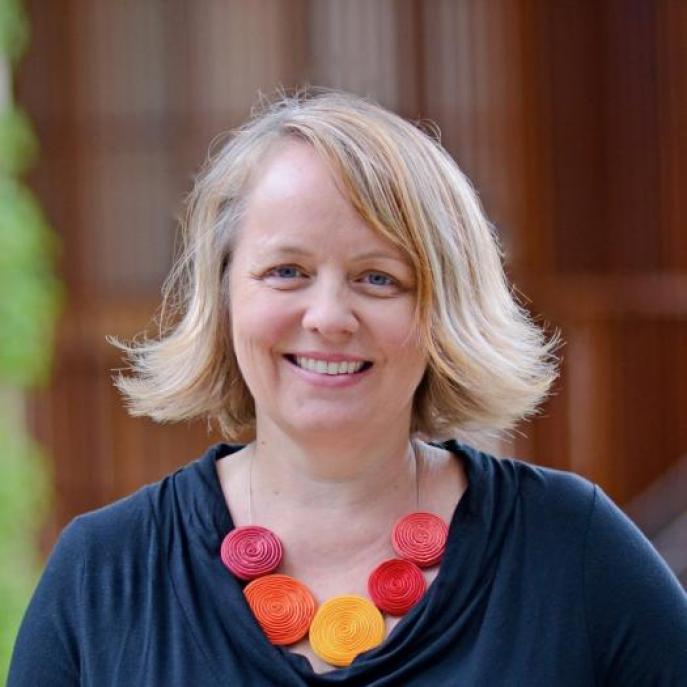
Non-Residential Fellow, Center for Internet and Society, Stanford University
Dr. Jennifer King is the Privacy and Data Policy Fellow at the Stanford University Institute for Human-Centered Artificial Intelligence. An information scientist by training, Dr. King is a recognized expert and scholar in information privacy. Sitting at the intersection of human-computer interaction, law, and the social sciences, her research examines the public’s understanding and expectations of online privacy as well as the policy implications of emerging technologies. Most recently, her research explored alternatives to notice and consent (with the World Economic Forum), the impact of California’s new privacy laws, and dark patterns. Her past work includes projects focusing on social media, genetic privacy, mobile application platforms, the Internet of Things (IoT), and digital surveillance. Her scholarship has been recognized for its impact on policymaking by the Future of Privacy Forum, and she has been an invited speaker before the Federal Trade Commission at several Commission workshops. She has been featured in numerous publications and outlets, including The New York Times, the Washington Post, the Los Angeles Times, Wired, Recode, National Public Radio, CNBC, Bloomberg, CNET, Vox, Consumer Reports, NBC News, MIT Technology Review, among others.
Dr. King completed her doctorate in Information Management and Systems at the University of California, Berkeley School of Information. Prior to joining HAI, Dr. King was the Director of Consumer Privacy at the Center for Internet and Society at Stanford Law school from 2018 to 2020. Before coming to Stanford, she was a co-director of the Center for Technology, Society, and Policy, a graduate student-led research center at UC Berkeley, and was a privacy researcher at the Samuelson Law, Technology, and Public Policy Clinic at Berkeley Law. She was a member of the California State Advisory Board on Mobile Privacy Policies and the California State RFID Advisory Board. She received her Master’s in Information Management and Systems also from the University of California, Berkeley’s School of Information, and her undergraduate degree in Political Science and Sociology from the University of California, Irvine. Prior to entering academia she worked in security and in product management for several Internet companies, most notably Yahoo!.
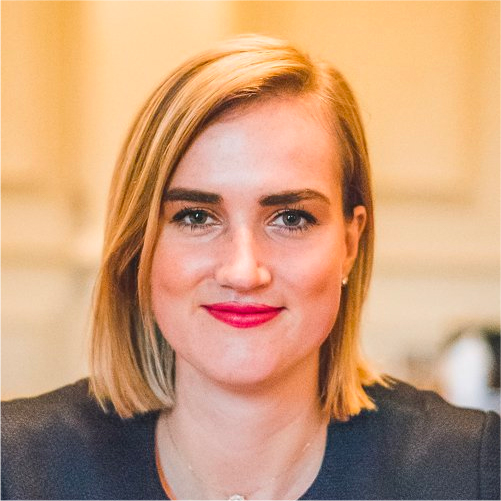
Research Scholar, Stanford Institute of Economic Policy Research
Research Associate, Institute for New Economic Thinking
Alissa M. Kleinnijenhuis has been a research scholar at the Stanford Institute of Economic Policy Research (SIEPR) at Stanford University and a research associate at the Institute for New Economic Thinking (INET) at the Oxford Martin School of the University of Oxford. Alissa is a co-PI of a Market Ecology & Financial Stability Grant, supervising four PhD students, and co-founder of the Environmental Stress Testing and Scenarios Program (ESTS), both at the University of Oxford. She taught a novel course at Stanford University in fall 2021 on Climate Finance.
Kleinnijenhuis’ research examines how finance can advance the public good, focusing on how the financial sector can be leveraged as a first-order driver of a climate change solution. In particular, her research in area of climate finance examines how financial incentives can be aligned with limiting climate risks and financing the transition to a carbon-neutral economy. Her research is all about making the triangular sectors of finance – the public, private and academic sector – work for the green transition. Her second area of expertise concerns financial stability, financial crises, financial stress testing, and financial regulation. Her two focal areas of research – climate finance and financial stability – are linked by their emphasis on addressing externalities emerging from climate change and too-big-to-fail financial institutions.
Dr. Kleinnijenhuis holds a BS from Utrecht University in Economics and Mathematics (cum laude), a MSc in Mathematics and Finance from the Imperial College London, and a DPhil (PhD) in Mathematical and Computational Finance from the University of Oxford. She was a postdoctoral fellow at the MIT Sloan School of Management and the MIT Golub Centre for Finance and Policy (GCFP) at the Massachusetts Institute of Technology. She has been a visiting scholar at Yale University and the University of California Santa Barbara, and has conducted research at Morgan Stanley and Allianz Global Investors.
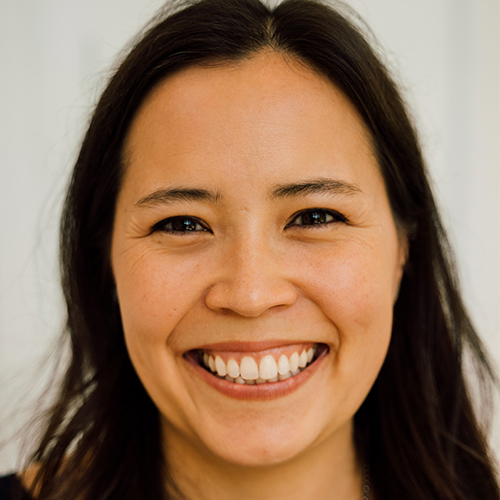
Executive Director. Stanford Digital Economy Lab
Prior to joining Stanford, Christie Ko was associate director of the MIT Initiative on the Digital Economy. Christie also served as the head of Member Services for the MIT Energy Initiative, where she worked closely with corporations, foundations, and individuals to support research, symposia, events, and educational programs. During her time at MITEI, she also ramped up a multi-disciplinary Energy Studies Minor and piloted an internship program.
Christie received a BA in literature from Boston University and an MS in writing and cultural politics from the University of Edinburgh.
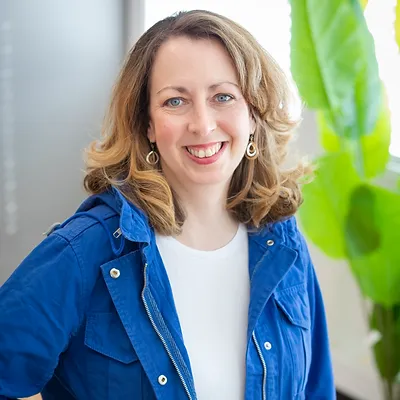
Founder, Worldview Studio
Brie is the founder of Worldview Studio. Previously she led Worldview Stanford, which pioneered interdisciplinary, multimedia learning experiences at Stanford University, and led strategy and scenario projects with Global Business Network (GBN) and Monitor. She holds a PhD in neuroscience, an MA in international policy studies (both from Stanford University), and a BA in psychology (Transylvania University).
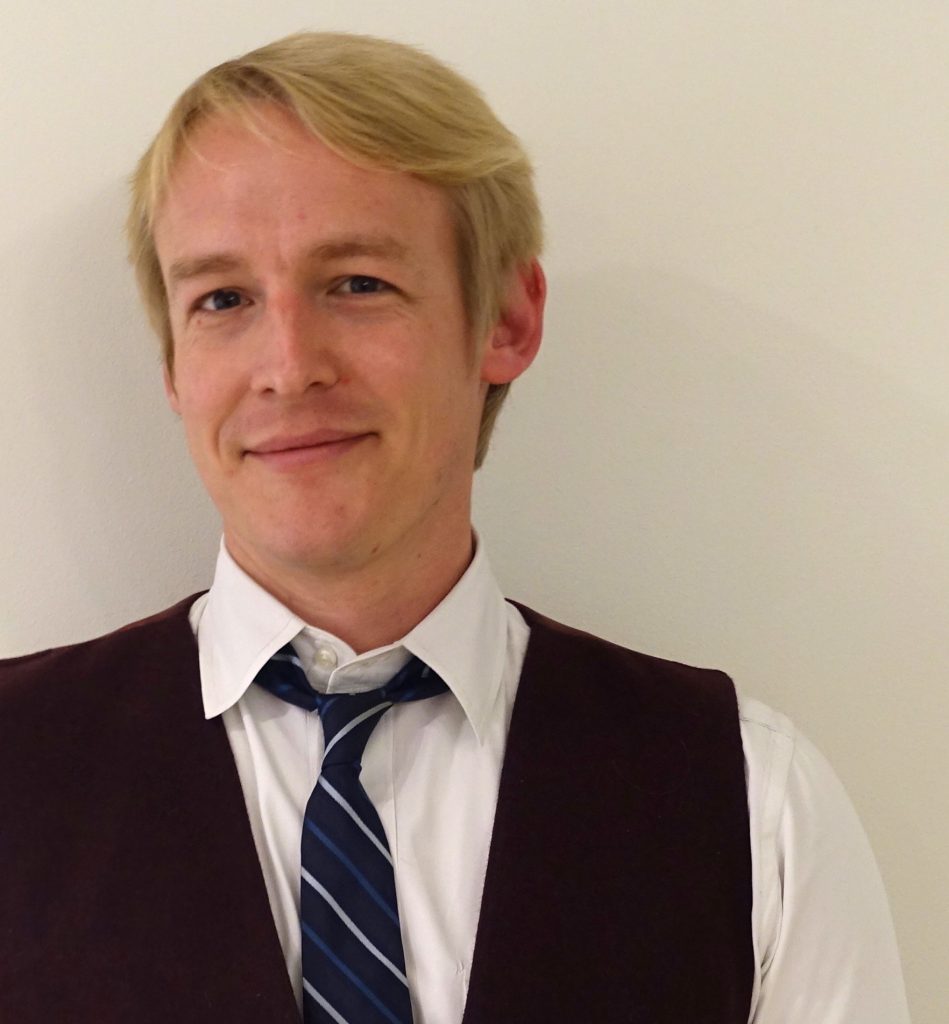
Practitioner Fellow, Digital Civil Society Lab, Stanford PACS
Sean Martin McDonald was a non-resident fellow at the Digital Civil Society Lab at Stanford PACS, focusing on the use of civic trusts to build public interest digital governance. Sean is the CEO of FrontlineSMS, an award-winning, social impact, open-source messaging company. FrontlineSMS’ messaging software is used by thousands of organizations to improve the lives of millions of people in more than 200 countries. Under Sean’s leadership, FrontlineSMS spun out several successful organizations, built a non-profit consultancy, and a self-sustaining open software social enterprise.
Sean has worked at the intersection of law, technology, and public interest governance for his entire career. Prior to Frontline, he worked in international development, the US Senate, and public interest international law. He is on the board of directors of the Center for Internet & Society and the Environmental Peacebuilding Institute. Sean is an advisor to DoSomething.org, Digital Democracy, ECPAT-USA, and TechChange.
Sean is a researcher on the law and use of data in the public interest. He’s the author of Ebola: A Big Data Disaster and a number of other articles focused on equity, law, and technology.
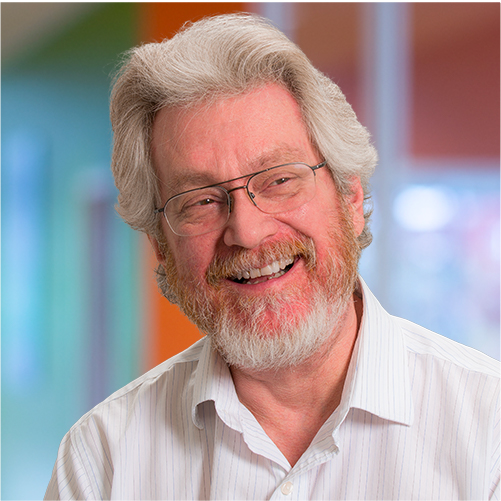
Director, MIT Human Dynamics Laboratory
Director, MIT Media Lab Entrepreneurship Program
Visiting Scholar, Stanford Digital Economy Lab
Alex `Sandy’ Pentland directs MIT’s Human Dynamics Laboratory and the MIT Media Lab Entrepreneurship Program, co-leads the World Economic Forum Big Data and Personal Data initiatives, and is a founding member of the Advisory Boards for Nissan, Motorola Mobility, Telefonica, and a variety of start-up firms. He has previously helped create and direct MIT’s Media Laboratory, the Media Lab Asia laboratories at the Indian Institutes of Technology, and Strong Hospital’s Center for Future Health.
In 2012 Forbes named Sandy one of the `seven most powerful data scientists in the world’, along with Google founders and the CTO of the United States, and in 2013 he won the McKinsey Award from Harvard Business Review. He is among the most-cited computational scientists in the world, and a pioneer in computational social science, organizational engineering, wearable computing (Google Glass), image understanding, and modern biometrics. His research has been featured in Nature, Science, and Harvard Business Review, as well as being the focus of TV features on BBC World, Discover and Science channels. His most recent book is `Honest Signals,’ published by MIT Press.
Over the years Sandy has advised more than 50 PhD students. Almost half are now tenured faculty at leading institutions, with another one-quarter leading industry research groups and a final quarter founders of their own companies.
Sandy’s research group and entrepreneurship program have spun off more than 30 companies to date, three of which are publicly listed and several that serve millions of poor in Africa and South Asia. Recent spin-offs have been featured in publications such as the Economist and the New York Times, as well as winning a variety of prizes from international development organizations.
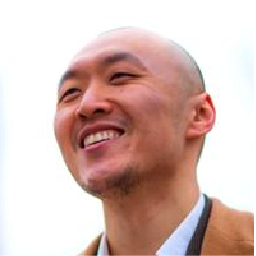
Executive Director, Metagovernance Project
Doctoral Student, University of Oxford
Joshua Tan is the executive director of the Metagovernance Project. He is also a practitioner fellow at Stanford’s Digital Civil Society Lab and a doctoral student in computer science at Oxford. Previously, Joshua completed his master’s in pure math at the Courant Institute at NYU, where his research involved applications of geometry and topology to artificial intelligence.
For his thesis, Joshua has been exploring different ways of applying category theory and sheaf theory to computational learning theory. He also conducts more applied research on collective intelligence and the governance of online communities. His interests include category theory, computational learning theory, sheaf theory, robotics, collective intelligence, and art history.
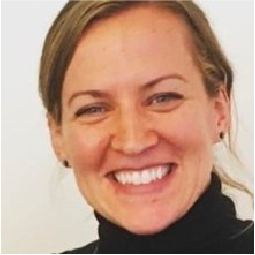
Associate Professor of Management Science and Engineering, Stanford University
Melissa Valentine is an Associate Professor at Stanford University in the Management Science and Engineering Department, and co-director of the Center for Work, Technology, and Organization (WTO).
Valentine’s research examines how new technologies change work and organizations. She conducts in-depth observational studies to develop new understanding about these changes. Valentine has received several best paper awards for research and has been recognized with an NSF CAREER award. She holds a bachelor’s degree from Stanford University, a master’s degree from NYU, and a Ph.D. from Harvard University.
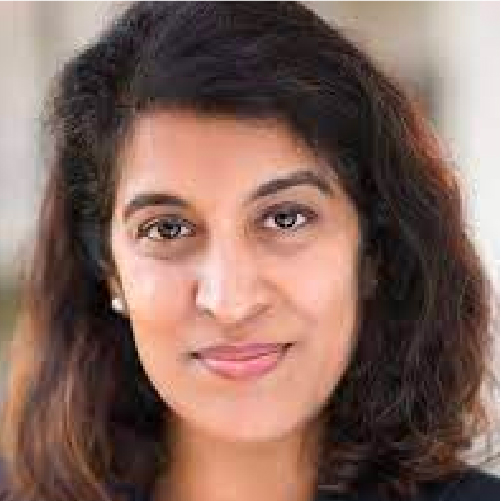
Chief Executive Officer, Crypto Council for Innovation
Sheila Warren is the chief executive officer for Crypto Council for Innovation (CCI), a global alliance formed to demonstrate the transformational promise of crypto and educate policymakers, regulators, and people around the globe.
Sheila leads a group of the most influential crypto industry leaders in the world representing Coinbase, Fidelity Digital Assets, Block, Andreessen Horowitz, Ribbit Capital, and Paradigm. Prior to joining CCI, Sheila served as the World Economic Forum’s deputy global head of the Centre for the Fourth Industrial Revolution, head of Data, Blockchain, and Digital Assets, and a member of its executive committee. She founded the blockchain and digital assets team at the Forum, and her pioneering policy work has helped shape the data and technology spaces to be more inclusive, equitable, and sustainable.
Sheila began her career as a Wall Street attorney at Cravath, Swaine & Moore LLP before turning to philanthropy and civic technology. She was a senior executive and general counsel at TechSoup. She also designed and launched NGOsource, a groundbreaking service focused on international grantmaking. Sheila is the co-host of “Money Reimagined”, CoinDesk’s popular podcast and serves on the board of directors of various nonprofit and social justice organizations. She graduated with honors from Harvard College and Harvard Law School.